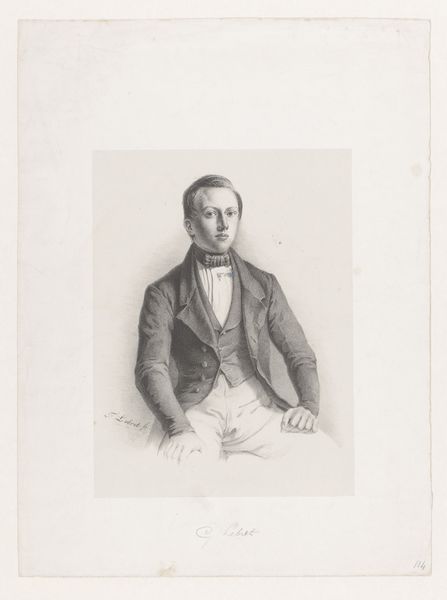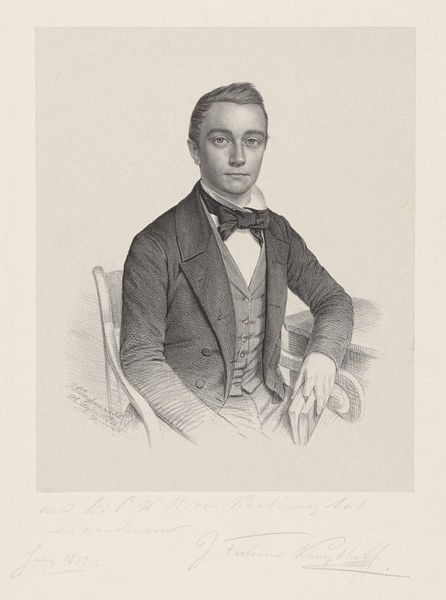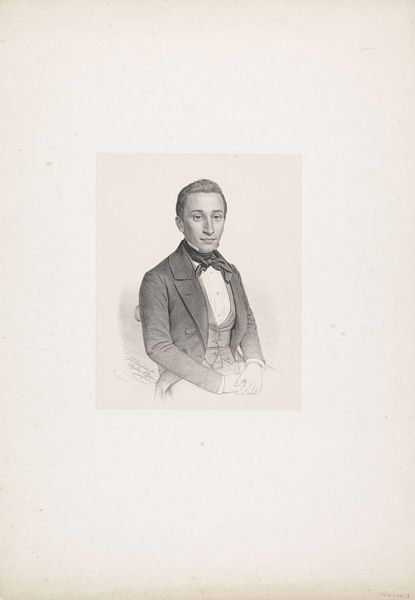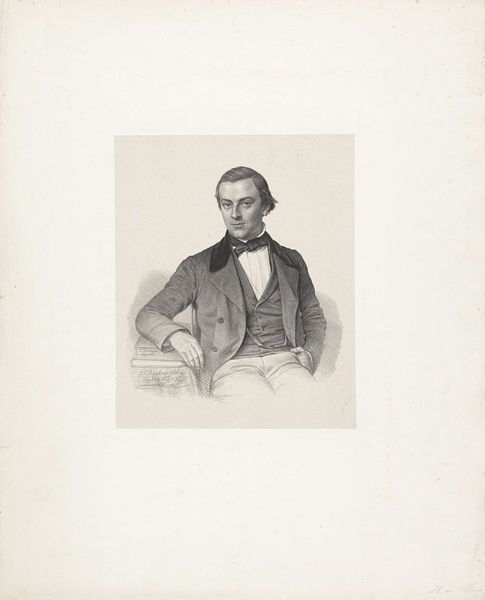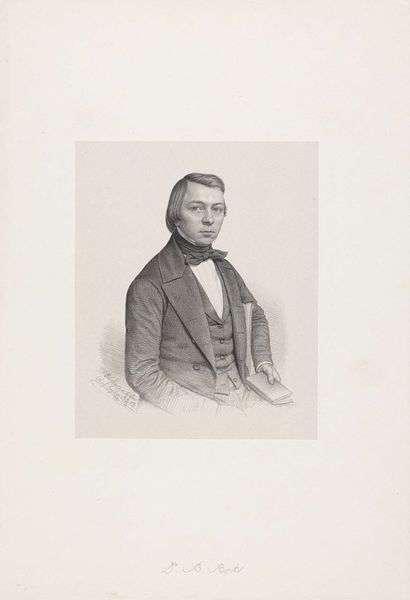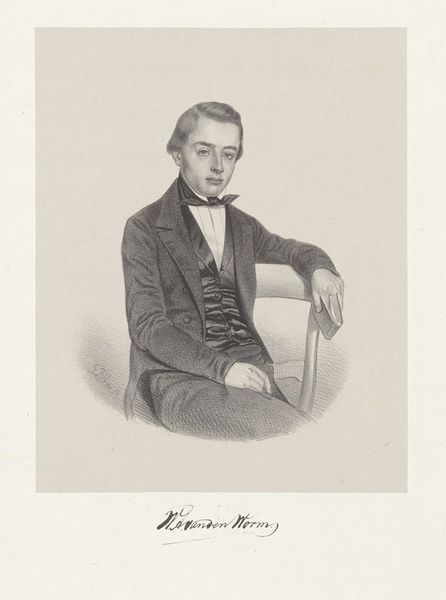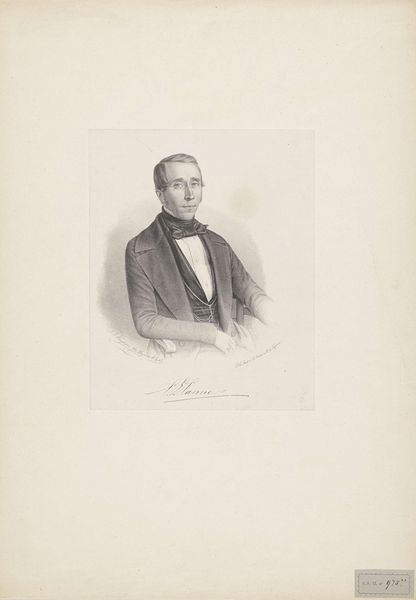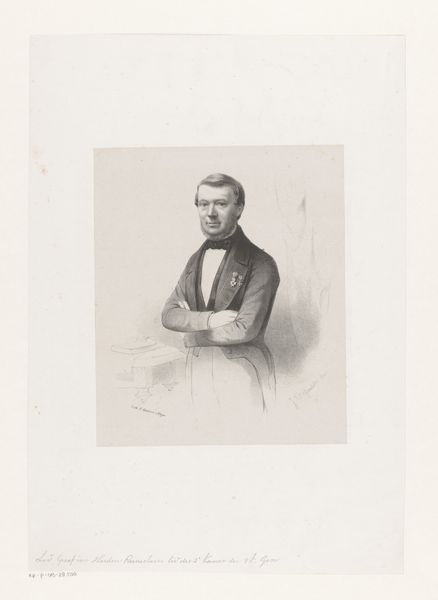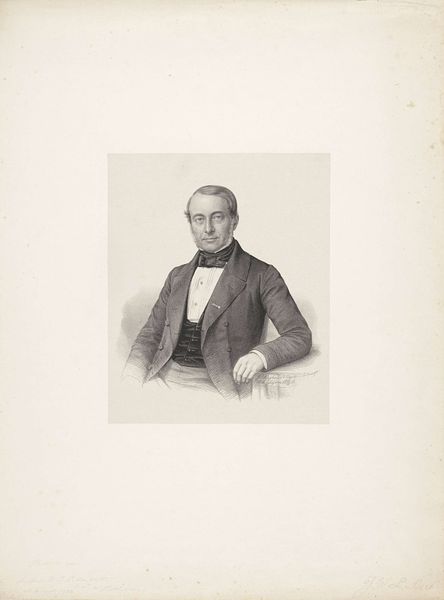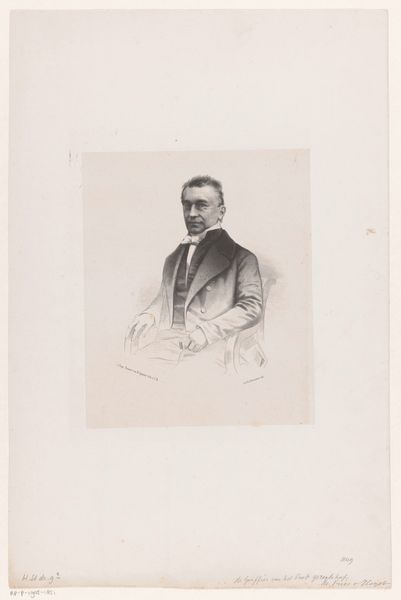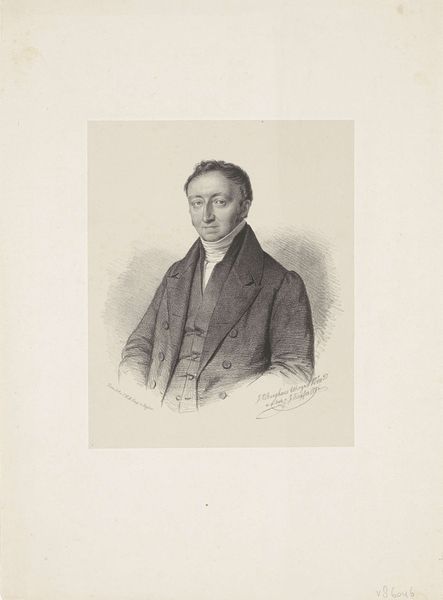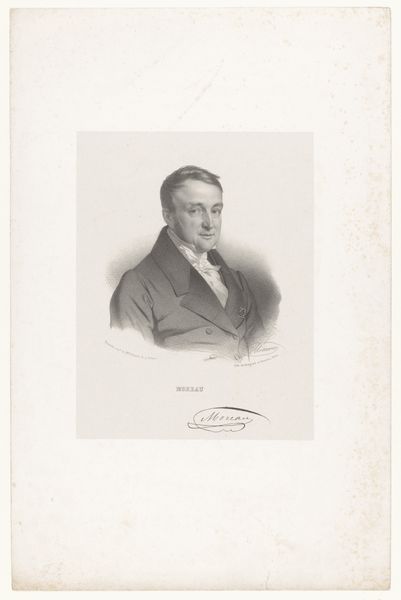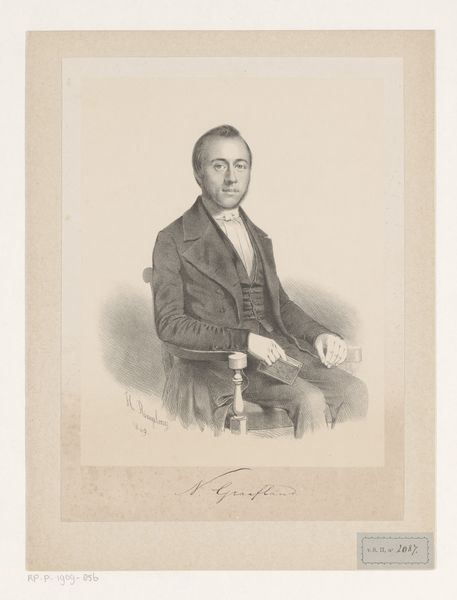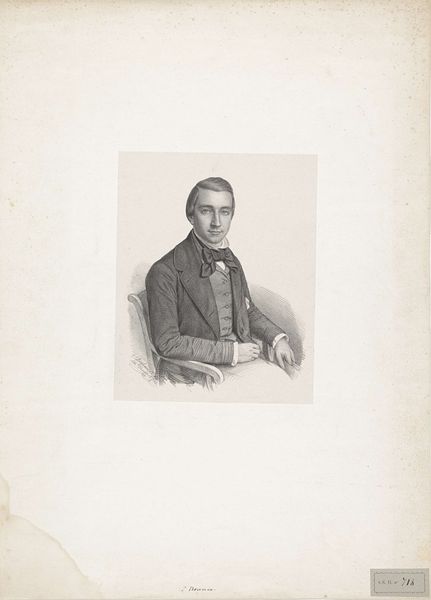
drawing, pencil
#
portrait
#
pencil drawn
#
drawing
#
light pencil work
#
pencil sketch
#
caricature
#
portrait reference
#
pencil
#
portrait drawing
#
pencil work
#
academic-art
#
realism
Dimensions: height 385 mm, width 285 mm
Copyright: Rijks Museum: Open Domain
This is a portrait of J.M. Boom, made by Johann Peter Berghaus using lithography, a printmaking technique that relies on the chemistry of oil and water. The design is drawn on a flat stone with a greasy crayon, allowing for finely detailed tonal gradations. Lithography emerged in the early 19th century as a relatively inexpensive way to reproduce images and text, and rapidly became a key medium for commercial printing. The surface of the stone retains the marks of its making; the velvety blacks, and the sharp lines that delineate the sitter’s features and clothing. Although lithography is a mechanical process, it still requires a skilled hand to create a compelling image. Note the sensitivity in the rendering of Boom’s face, and the textures of his jacket. Berghaus has used the medium to create a lifelike and engaging portrait, one that speaks to the democratizing potential of printmaking. This portrait reminds us that even seemingly straightforward images are the product of complex material processes, and that the history of art is intertwined with the history of labor and industry.
Comments
No comments
Be the first to comment and join the conversation on the ultimate creative platform.
